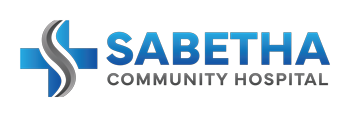
Picture of a Physician holding a stethoscope up to check elderly woman's heartbeat
AMERICA HEART HEALTH MONTH
AMERICA HEART HEALTH MONTH
Sabetha Community Hospital Outpatient Department is proud to offer the services of five Cardiologists from Cotton O'Neil Heart Center and one Cardiologist from University of Kansas Health System Heart and Vascular Center. Call the Sabetha Outreach Department at (785) 284-1552 for more information or to inquire about an appointment. American Heart month has been celebrated in the United States every February since 1964. The theme for 2021 is #OurHearts, which can be followed on Facebook and Instagram.
One in four deaths in the USA is caused by heart disease so getting the facts out is an important part of educating the public on good heart habits. Heart disease is a catch-all phrase for a variety of conditions that affect the heart's structure and function. Coronary heart disease is a type of heart disease that develops when the arteries of the heart cannot deliver enough oxygen-rich blood to the heart. It is the leading cause of death in the United States.
Coronary heart disease is often caused by the buildup of plaque, a waxy substance, inside the lining of larger coronary arteries. Symptoms of coronary heart disease may be different from person to person even if they have the same type of coronary heart disease. However, because many people have no symptoms, they do not know they have coronary heart disease until they have chest pain, a heart attack, or sudden cardiac arrest.
An acute coronary event, such as a heart attack, may cause the following symptoms: cold sweats, dizziness, light-headedness, nausea or a feeling of indigestion, neck pain, shortness of breath, especially with activity, sleep disturbances or weakness. Please contact your doctor if you experience any of these symptoms for a period of time.
If you have a heart attack or heart disease, your doctor may recommend that you adopt lifelong heart-healthy lifestyle changes, including: aiming for a healthy weight, being physically active, heart-healthy eating, managing stress, stopping smoking and getting enough good-quality sleep. He/she may also recommend medicines to manage your risk factors or treat underlying causes. Some medicines reduce or prevent chest pain and manage other medical conditions that may be contributing to your coronary heart disease. Your doctor will know the right medicine for you.
You may need a procedure or heart surgery to treat more advanced coronary heart disease. The three different procedures or surgeries normally used are:
Percutaneous Coronary Intervention-to open coronary arteries that are narrowed or blocked by the buildup of atherosclerotic plaque.
Coronary Artery bypass grafting--to improve blood flow to the heart by using normal arteries from the chest wall and veins from the legs to bypass blocked arteries.
Transmyocardial laser revascularization to treat severe angina associated with coronary heart disease when other treatments are too risky or did not work.
